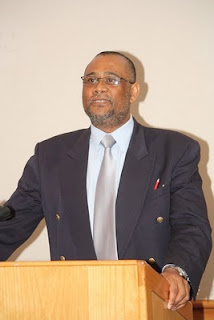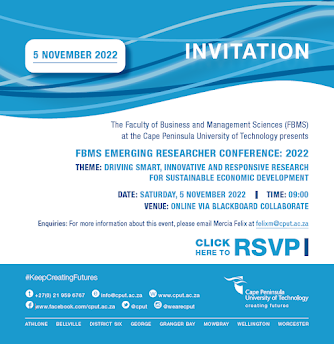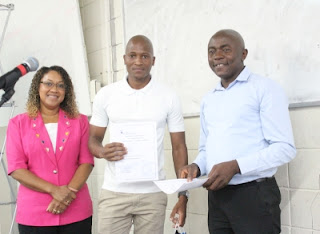Chris Cupido’s Review of the State of the Nation Address 2012
 |
| Mr Chris Cupido - Financial Management Expert |
Essentially, the stability and growth of the economy were the focal points of the speech. The emphasis was predominantly on Infrastructure to address the mired growth in the economy with unemployment, and unequal and distorted income distribution. The economy is plagued with high unemployment rate of 24% and government fails to address this problem and its target to reduce unemployment to sub 20% in 2011.
The cost of doing business in South Africa is a major challenge. These costs reflect directly on the bottom line of businesses with destructive effects fuelled by high wage levels that outweigh production levels. His Excellency announced moves to cut the cost of doing business in South Africa by reducing port cost and request Eskom to keep electricity cost moderate. However, not much was said to alleviate the plight of the SMME, the most likely catalyst in the wealth creation and an antidote to the unemployment crisis we face.
Apart from the focus of growing the economy through massive capital investment by means of infrastructure and at the same time addressing the unemployment problem, his Excellency also undertook to assist those, who do not earn within the prescribed bracket of R3500 to R15000 to purchase a house. A R1 billion loan guarantee was set aside for those in this category. Other avenues that the Zuma administration perceived they did well in were Education-, Health- and Human Settlements and Policing sector.
The State of the Nation’s speech was without prejudice aimed to please the masses. Consequentially, his Excellency has played the numbers game and exploited the ignorance of the mass population. Taken the facts in retrospect one has to wait with baited breath, how these pledges of his Excellency, in his state of the nation’s speech will come to fruition.
From an economic analogy the South African economy grew on average 2.4% which is not favourable in comparison with the likes of Nigeria, Congo, Zambia and Egypt to mention but a few African states, that have manage to realise a GDP of 6%+ growth in 2011.
With real figures of 2.4% GDP growth and 6%+ population growth, the future do not look good with food security and job creation. What His Excellency did take into account is the 250000+ youth that enter the unemployment market annually after matriculation.
In His Excellency’s speech the way forward is to “industrialise the country, generate skills and boost job creation... [we] mainstream employment in every government entity and par-statals”. The million dollar question is “where are the funds going to be realised from to sustain these projects”? Government is dependent on industry and its tax-paying citizens’ to sustain and maintain its daily operations to run the country. In the 2011 fiscal year SARS published that 3,5 million people paid their personal income tax, in a country with a 50 million population, that equates to 7% of the population contributing to the governance of our country.
Therefore the oversight of not nurturing or incentivise SMME’s is most disappointing. The decision to cut the cost of running a business in South Africa will mainly benefit the large corporation. Also the capitalisation of the infrastructure will be financed by the tax payer who is already stretched beyond his capacity. In conclusion One billion Rands of incentive for lower income groups to obtain a house of their own sound wonderful in principle however if one has to consider the millions that need to be accommodated in this sector and the amount tabled to assist these group, mathematics dictate that the state will only be able to assist twelve thousand with allocated funds.
The overall speech was, as expected upbeat and populist.
-----
What are your thoughts on this analysis? Register to follow and comment. Soon, Chris will give us his analysis of the 2012 budget.


Download the original attachment
ReplyDelete
thank you very much Mr Cupido for such a thoughful and detailed analysis. it is a cause for concern when the state overlook the contribution of smme's in the economy. smme's are of utmost importance in the economy as they are key drivers in improving efficiency and employment in the country. the failure by the government to prioritise smme's will criple development of the sector as they need financial aid to meet with the escalating cost of business. most smme's most in the start up phase incur high operating costs with little revenue, this is the period the government should give a helping hand to these businesses inorder for them to survive.
His excellency, emphasised that mining and massive infrastructure development as key drivers to employment creation, reducing social inequalities.l do agree with the President's opinion but l think some sectors of the economy such as agriculture have been forgoten. there is need for investment in agriculture to boost production and failure to prouduce enough in the economy will result in food shortages. to remedy this problem the government will be forced to import and the issues such as inbalance of trade come into play that is imports > exports a scenario which is not financially healthy for the economy.
GDP growth is lower than population growth implying that the economy might not sustain this growth. what about exports? is the Zuma adminstration doing enough to encourage and remove trade barries on national frontiers to stimulate exports. more exports will significantly increase the country's gross national income.
let me close by saying, will the Zuma administration deliver their promises in 2012 or its another fruitless year for South Africa.
thank you